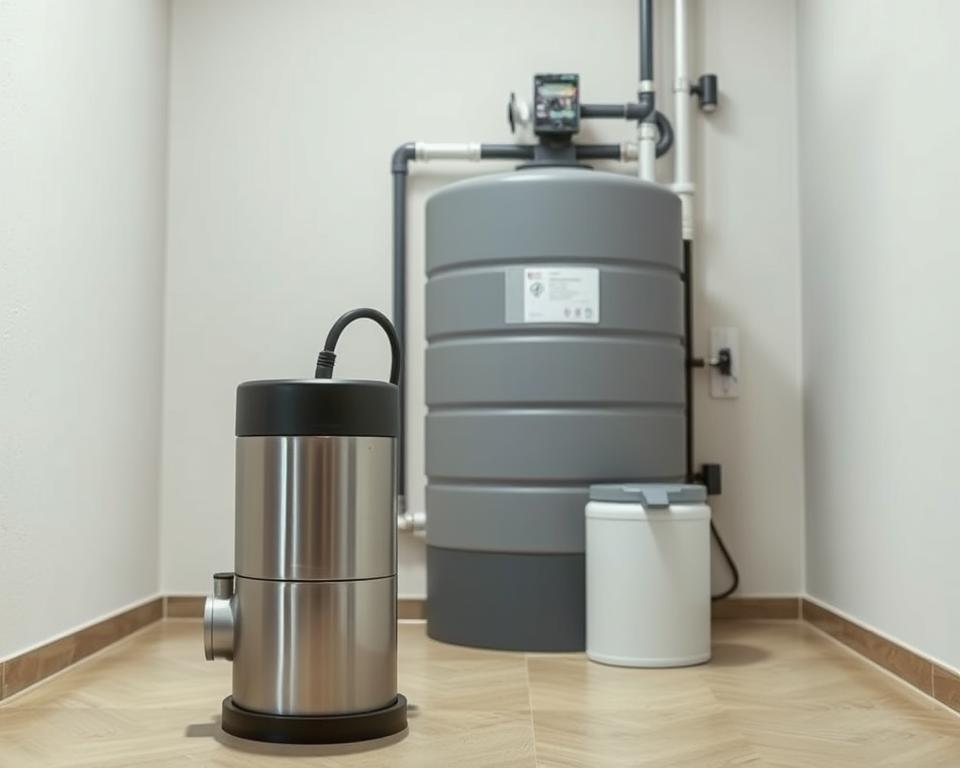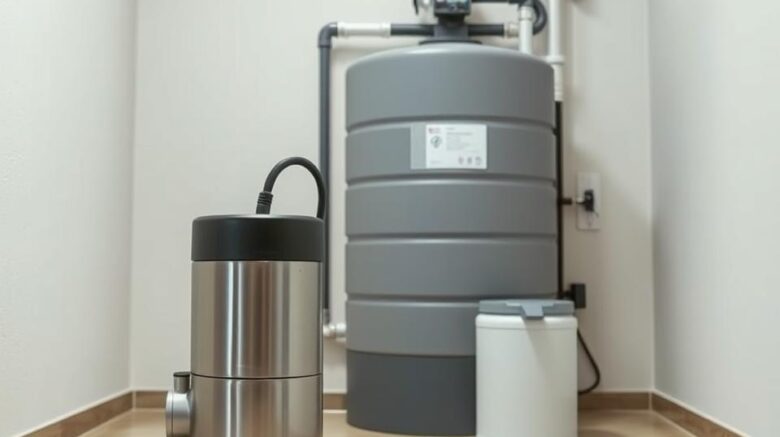RV Sewage Pump: Key Care Pointers
Is your RV’s black water pump really ready for the road, or might it lead to camping woes? Maintaining your motorhome’s waste system in prime condition is critical. It wards off unpleasant aromas, obstructions, and hefty fixes. Below are indispensable advice to make sure your sewage pump operates without a hitch, keeping your travels stress-free.
Getting to Know Your RV’s Plumbing System
The RV plumbing system is fundamental for any pleasant excursion. It breaks down into two main parts: the black water system and the gray water system – RV septic pumping near me. The black water system collects waste from the toilet, and the gray water system deals with wastewater from sinks and showers.
The systems use drain lines that empty into different tanks, designed for efficient waste management. Each tank has a vent to block gas from building up, ensuring the operation is safe and scent-neutral. Proper waste management in an RV is vital to sidestep leaks or bad odors. By understanding both black and gray water tanks, RV owners can look after and manage waste better.
Grasping how your RV’s plumbing works reveals issues promptly. Regular maintenance creates carefree adventures for everyone. Staying ahead with your RV’s plumbing system secures reliability during your travels.
Types of Tanks
Owning RVs involves recognizing the different tanks. Each one is vital to your RV’s system, demanding regular upkeep.
The fresh water tank stores drinking water. It’s necessary for a comfortable RV experience.
The gray water tank collects sink, shower, and other non-Septic wastewater. Maintaining this tank keeps your RV fresh while traveling. The black water tank, on the other hand, contains toilet waste. It needs routine emptying and careful maintenance to avoid issues.
By learning about the fresh, gray, and black water tanks, RV owners can smoothly run their systems. This strategizing and steady maintenance ensure smooth functionality of the waste management system.
Black Tank Mechanics
The operation of the black water tank is crucial in RV waste management. It stores waste from the toilet via a gravity-fed system. Upon flushing, waste and water are channeled to the tank, to be stored until removal is necessary. It’s important to keep water levels optimized in the toilet to prevent solid waste buildup.
Grasping how RV waste tanks function can circumvent clogs and odors. Without proper care, solid waste hardens, producing blockages and emptying difficulties. Thorough tank flushing techniques are key to preventing these issues, ensuring smooth functionality.
Routine inspection of tank mechanics is advised for RV owners. This includes checking flushing methods and sustaining adequate water flow. Applying these essentials supports efficient tank maintenance, averting expensive fixes later.

Key Maintenance Tips for Your RV Black Water Pump
Performing regular maintenance on your RV’s black water pump is imperative. Start by selecting RV-safe toilet paper to reduce clogs and enhance flow. A comprehensive flush can remove waste and diminish bad smells. Periodically cleaning the tank helps prevent residue buildup, keeping your RV clean and comfortable.
Carry out periodic inspections to monitor your pump’s condition. Watch for any signs of wear or damage that could hinder its function. Using specialized tank treatments, like those from All in Sanitation, can greatly improve both performance and cleanliness. Adhering to these tips can lengthen your pump’s life and better your RV’s living conditions.
Opt for RV-Specific Tissue
Maintaining your RV’s black water system requires key actions. One key strategy is using RV-safe toilet paper for clog prevention. This specifically designed product softens quickly in water, ideal for RV sanitation systems.
RV-safe toilet paper is crucial for tank maintenance. It dissolves fast, stopping blockages from slow-decomposing materials. This improves waste disposal efficiency and keeps the plumbing trouble-free.
Pick brands marked as RV-safe when buying toilet paper. These products reduce clog risks and boost your black water tank‘s lifespan by preventing buildup. Continual use guarantees a stress-free camping experience, without plumbing troubles.
Proper Tank Cleansing
Deep-flushing your black water tank is key for effective waste management in your RV. To support waste movement, verify the toilet bowl is properly topped up before flushing. Many RVs are equipped with built-in tank flush systems to make the process more streamlined. For RVs without this feature, employing tank rinsers that attach to the sewer outlet offers a reliable alternative.
Regular tank flushing facilitates waste removal and avoids solid accumulations and bad smells. Maintaining this process secures your RV stays fresh-smelling, making your travels more comfortable. A commitment to regular and complete tank flushing will boost hygiene and the overall condition of your RV’s plumbing system.
Prevent Build-Up with Regular Cleaning
Keeping your RV’s black water tank free of buildup is key for its optimal function. Regular cleaning gets rid of lingering waste inside the tank walls. This means washing well with water and using specific RV tank cleaners for tough deposits.
By cleaning faithfully, you stop odors and minimize clog risks. A properly cleaned tank makes RVing better and helps your plumbing last longer. Incorporate tank maintenance into your routine to ensure smooth travels.
Picking Suitable Additives
Selecting suitable chemicals for RV black water pump maintenance is critical for managing waste and controlling smells. Many RV enthusiasts use enzyme-based RV holding tank treatments. These products feature good bacteria to degrade solids and reduce bad odors.
Keeping away from harsh chemicals is essential to prevent damage to your plumbing. Such substances can corrode pipes, leading to pricey replacements and diminishing your RV enjoyment. Utilizing safe chemicals for odor control secures your tank and pump’s longevity.
Keeping your RV black water tank in peak form improves your travel experience. Using the right holding tank treatment consistently makes sure your system works well.
Proper Dumping Schedule
It’s vital to empty your RV’s black water tank at the proper level for smooth emptying. Try to empty when the tank is about two-thirds full is sensible. This sidesteps solid waste buildup, ensuring a smoother emptying process.
Dumping at designated stations is vital for safe, eco-friendly waste handling. It’s important to monitor the tank‘s levels closely. Permitting full capacity can lead to clogs and make disposal more difficult.
Proper timing and methods are vital for hygienic waste management and can extend your plumbing’s life. Remaining attentive and maintaining your system correctly delivers a pleasant RV living experience.
Seal Checks & Care
Checking seals around the toilet and tank is important for leak prevention. Over time, these seals might break down, leading to odors and potential harm. A thorough inspection will identify any wear or damage. Finding issues early permits quick replacement to ensure a secure connection and odor-free RV.
Maintaining a bit of water in the toilet bowl helps in preserving seal condition. This preventative measure is key in RV seal upkeep. It extends the seals’ life, stopping leaks and foul odors.
Periodic seal maintenance can stop expensive repairs later. By paying attention to seal health, RV owners deliver a pleasant journey.
Long-Term Care Suggestions
Setting up professional servicing for your RV at least once a year is smart, particularly for black water tank care. This strategy aids in catching trouble fast and preserves your plumbing system’s integrity.
When getting your RV for storage, completely clean and empty the black water tank first. Think about antifreeze to prevent damage from remaining water during cold seasons. Following this practice is essential for safeguarding the system, ensuring it’s ready for your next adventure.
Steady reviews and preventive actions are key to prolonging your sanitation system’s life. Monitoring connections, hoses, and seals delivers smooth operations. This mindset enhances your RV experience, making it enjoyable all year round.
Making sure your RV’s black water pump is well-maintained is vital for a stress-free camping journey. By sticking to the maintenance tips shared, you can retain your black water system working efficiently. It’s key to focus on regular cleaning, using correct flushing methods, and opting for appropriate chemicals for waste management.
By hitting these maintenance requirements, you will prevent unpleasant odors and blockages. This also increases your RV plumbing system’s durability. Proactive care of the RV black water pump leads to more time enjoying the outdoors, absent potential setbacks.
Keep in mind, proper upkeep is key next time you gear up for an outing. It’s not the highlight of RV ownership, yet it significantly improves your travel experience.
